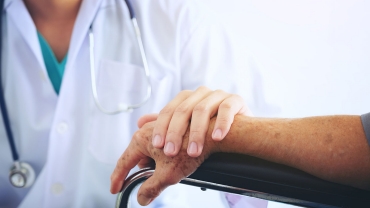Staying home when home is unsafe
Economic stress is a key risk factor for domestic violence, according to the World Health Organization. In the case of COVID-19, which has shutdown thousands of businesses and pushed unemployment rates higher, the situation is worsened by the demand that people shelter in place. The stay at home requirement can create heightened risks for victims of abuse who now remain locked in with an abuser. In Jianli county of Hubei province, China, one police station had a three-fold increase in domestic violence cases compared to 2019. Despite well-acknowledged underreporting due to fear, stigma, and other barriers, reported cases are rising around the world. Underreporting is also a problem in the GCC, where victims of domestic violence rarely report their abuse except in cases of extreme physical harm.
GCC governments have been responding to the needs of victims of abuse. In 2019, Abu Dhabi developed a set of policies and designed a multi-stakeholder ecosystem to support victims – a promising early step for the region. However, even the world’s most advanced social protection programs have been unprepared for COVID-19. With the sudden increase in remote work and education, many domestic abuse cases that schools, employers, family and friends would have spotted and reported now go unnoticed behind locked doors. Domestic abuse shelters have less capacity due to social distancing rules. Travel restrictions mean fewer refuge options. House visits that social workers normally conduct to follow up on former victims have been curbed or shifted online. For some, confinement is translating to hopelessness.
In response, governments are rushing to make virtual resources accessible. Beyond standard hotlines, these resources include watch-parties, chat services, and support groups to discuss topics such as mental health, substance abuse, immigration, and legal services. One website offers an “escape” button to allow victims to exit the website quickly without leaving a trace in their browsing history. In Spain, victims too scared to call the police are being advised to use a codeword at neighborhood pharmacies. In France, police intervention in domestic violence cases has surged by a third in the week following announcement of the lockdown and the government has committed to pay for 20,000 hotel nights for victims and temporary counseling centers in supermarkets.


















Menu